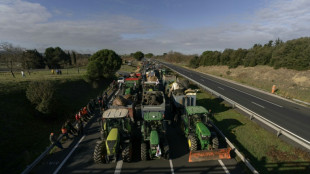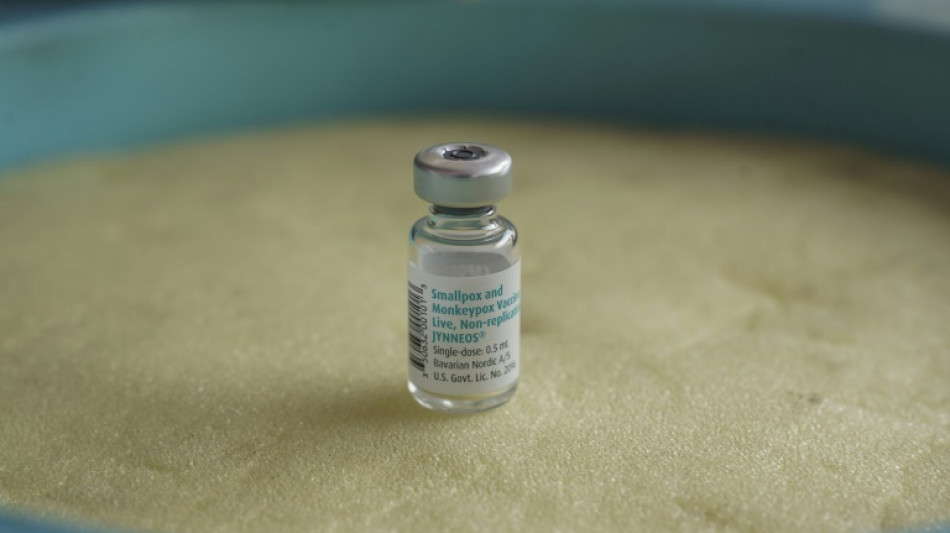
-
 Trump says comedian Colbert should be 'put to sleep'
Trump says comedian Colbert should be 'put to sleep'
-
Mahrez leads Algeria to AFCON cruise against Sudan

-
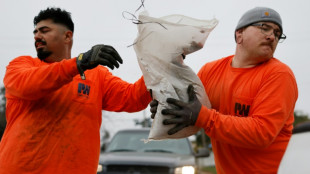 Southern California braces for devastating Christmas storm
Southern California braces for devastating Christmas storm
-
Amorim wants Man Utd players to cover 'irreplaceable' Fernandes

-
 First Bond game in a decade hit by two-month delay
First Bond game in a decade hit by two-month delay
-
Brazil's imprisoned Bolsonaro hospitalized ahead of surgery

-
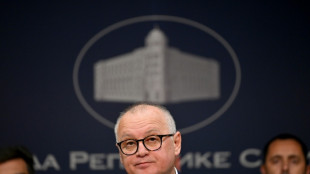 Serbia court drops case against ex-minister over train station disaster
Serbia court drops case against ex-minister over train station disaster
-
Investors watching for Santa rally in thin pre-Christmas trade

-
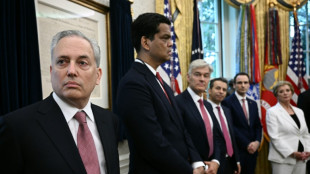 David Sacks: Trump's AI power broker
David Sacks: Trump's AI power broker
-
Delap and Estevao in line for Chelsea return against Aston Villa

-
 Why metal prices are soaring to record highs
Why metal prices are soaring to record highs
-
Stocks tepid in thin pre-Christmas trade

-
 UN experts slam US blockade on Venezuela
UN experts slam US blockade on Venezuela
-
Bethlehem celebrates first festive Christmas since Gaza war

-
 Set-piece weakness costing Liverpool dear, says Slot
Set-piece weakness costing Liverpool dear, says Slot
-
Two police killed in explosion in Moscow
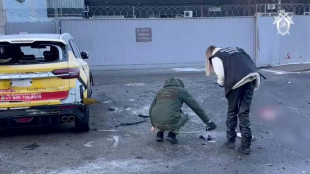
-
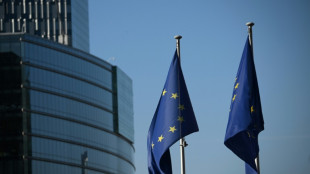 EU 'strongly condemns' US sanctions against five Europeans
EU 'strongly condemns' US sanctions against five Europeans
-
Arsenal's Kepa Arrizabalaga eager for more League Cup heroics against Che;sea

-
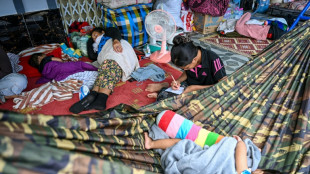 Thailand-Cambodia border talks proceed after venue row
Thailand-Cambodia border talks proceed after venue row
-
Kosovo, Serbia 'need to normalise' relations: Kosovo PM to AFP

-
 Newcastle boss Howe takes no comfort from recent Man Utd record
Newcastle boss Howe takes no comfort from recent Man Utd record
-
Frank warns squad to be 'grown-up' as Spurs players get Christmas Day off

-
 Rome pushes Meta to allow other AIs on WhatsApp
Rome pushes Meta to allow other AIs on WhatsApp
-
Black box recovered from Libyan general's crashed plane
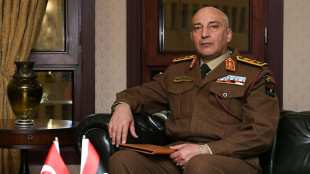
-
 Festive lights, security tight for Christmas in Damascus
Festive lights, security tight for Christmas in Damascus
-
Zelensky reveals US-Ukraine plan to end Russian war, key questions remain
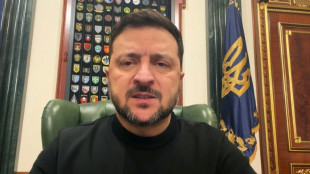
-
 El Salvador defends mega-prison key to Trump deportations
El Salvador defends mega-prison key to Trump deportations
-
Stranger Things set for final bow: five things to know

-
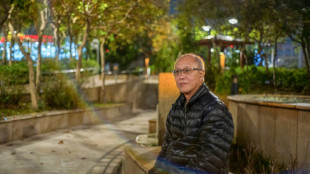 Grief, trauma weigh on survivors of catastrophic Hong Kong fire
Grief, trauma weigh on survivors of catastrophic Hong Kong fire
-
Asian markets mixed after US growth data fuels Wall St record

-
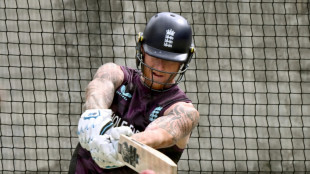 Stokes says England player welfare his main priority
Stokes says England player welfare his main priority
-
Australia's Lyon determined to bounce back after surgery
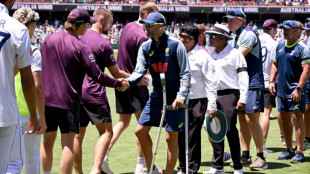
-
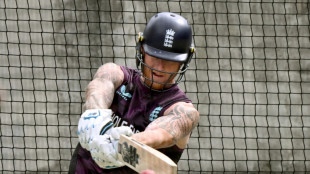 Stokes says England players' welfare his main priority
Stokes says England players' welfare his main priority
-
North Korean POWs in Ukraine seeking 'new life' in South

-
 Japanese golf star 'Jumbo' Ozaki dies aged 78
Japanese golf star 'Jumbo' Ozaki dies aged 78
-
Johnson, Castle shine as Spurs rout Thunder

-
 Thai border clashes hit tourism at Cambodia's Angkor temples
Thai border clashes hit tourism at Cambodia's Angkor temples
-
From predator to plate: Japan bear crisis sparks culinary craze
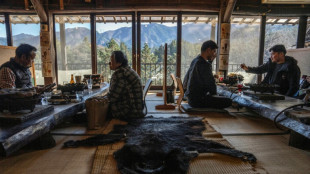
-
 Asian markets mostly up after US growth fuels Wall St record
Asian markets mostly up after US growth fuels Wall St record
-
'Happy milestone': Pakistan's historic brewery cheers export licence

-
 Chevron: the only foreign oil company left in Venezuela
Chevron: the only foreign oil company left in Venezuela
-
US denies visas to EU ex-commissioner, four others over tech rules
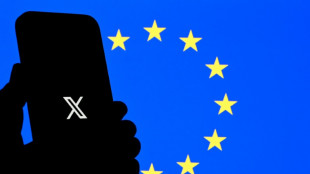
-
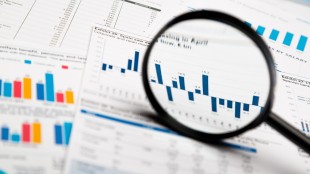 SMX Is Being Valued By Monetizing Certainty, Not Sustainability Narratives
SMX Is Being Valued By Monetizing Certainty, Not Sustainability Narratives
-
SMX Is Earning Validation, and Valuation, Through Industrial Proof, Not Promises

-
 SMX's Valuation Is Anchored in Fixing a Structural Supply-Chain Failure Markets Learned to Ignore
SMX's Valuation Is Anchored in Fixing a Structural Supply-Chain Failure Markets Learned to Ignore
-
2026 Payer IT Outsourcing Outlook: Outcome-Based Managed Services, Production-Grade GenAI Governance, and Vendor-Risk Enforcement

-
 Gold's Quiet Molecular-Level Reckoning Is Happening Outside the Spotlight
Gold's Quiet Molecular-Level Reckoning Is Happening Outside the Spotlight
-
SMX Is Transitioning From Single Deployments to Supply-Chain Infrastructure

-
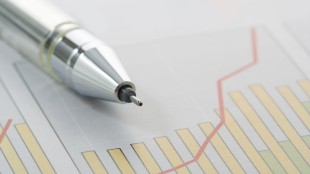 Each SMX Partnership Opens a Market, the Portfolio Multiplies the Value
Each SMX Partnership Opens a Market, the Portfolio Multiplies the Value
-
CORRECTION: Nextech3D.ai Provides Shareholder Update on Krafty Labs Acquisition and Announces $321,917 CEO Investment


Pandemic agreement: key points
After more than three years of thorny negotiations, World Health Organization member states finalised early Wednesday a major agreement on pandemic prevention, preparedness and response.
Here are the main points in the accord, which will be submitted for final approval at the WHO's annual assembly next month.
- Objective -
The objective of the WHO Pandemic Agreement is "strengthening pandemic prevention, preparedness and response".
Following the glaring inequity and deficiencies exposed in the world's handling of the Covid-19 pandemic, the agreement is guided by the principles of equity, solidarity and transparency.
Respect for the sovereign rights of states -- an issue widely questioned by conspiracy theories that have surrounded the negotiations -- is also a key foundation, according to the text.
- Pathogen access, benefit sharing -
The heart of the agreement is the proposed Pathogen Access and Benefit-Sharing System (PABS) -- a new platform allowing the swift sharing of pathogen data with pharmaceutical companies, enabling them to start work quickly on pandemic-fighting products.
This was one of the trickiest parts to negotiate.
Developing countries had expressed concerns about handing over pathogens and data if they risked being cut off from accessing the resultant vaccines, tests and treatments, as happened at the start of the Covid-19 pandemic.
Under PABS, countries will commit to sharing data rapidly on emerging problematic pathogens, while vaccines and other health products derived from accessing that information would be shared on a more equitable footing.
The text calls for participating manufacturers to make available to the WHO at speed "20 percent of their real-time production" of pandemic-related health products, including "a minimum threshold of 10 percent" in the form of donations, and the rest "reserved at affordable prices" for the UN health agency.
Manufacturers, even those based in non-WHO countries, can choose freely to participate in the voluntary programme, for which the practical modalities still remain to be negotiated.
- Technology transfer -
Another main sticking point has been the modalities around the transfer of technology and know-how needed to produce pandemic-related health products, in particular to developing countries.
Some wealthier countries, notably ones where such products are currently produced, rejected the idea that such transfers should be mandatory.
The agreed-upon text instead calls for transfers to be undertaken on "mutually agreed" terms.
And it calls for the use of measures and incentives including licensing agreements and favourable conditions linked to things like financing and regulations to promote technology transfer.
- Prevention and surveillance -
Under this section, countries will take progressive steps to strengthen their pandemic prevention and surveillance capacities.
Subject to resources, countries are called on to develop, reinforce and implement comprehensive national pandemic prevention plans.
This would include things like routine immunisation, managing biological risks in laboratories, preventing antimicrobial resistance, and stopping the transmission of diseases from animals to humans.
- Sustainable local production -
The text calls for countries to take measures to ensure "more equitable geographical distribution and rapid scale-up of the global production of pandemic-related health products" like vaccines.
It also calls for more "sustainable, timely and equitable access to such products", and for countries to "reduce the potential gap between supply and demand during pandemic emergencies".
- Supply chain and logistics -
In an attempt to smooth out the flaws exposed by Covid-19, a Global Supply Chain and Logistics Network will be set up for equitable, timely and affordable access to pandemic-related health products.
During pandemic emergencies, countries should prioritise sharing pandemic-related health products through the network to ensure equitable distribution based on public health risk and need.
The structure and operational modalities of the network, which is to be coordinated by the WHO, will be defined at its first meeting, according to the text.
T.Ward--AMWN


